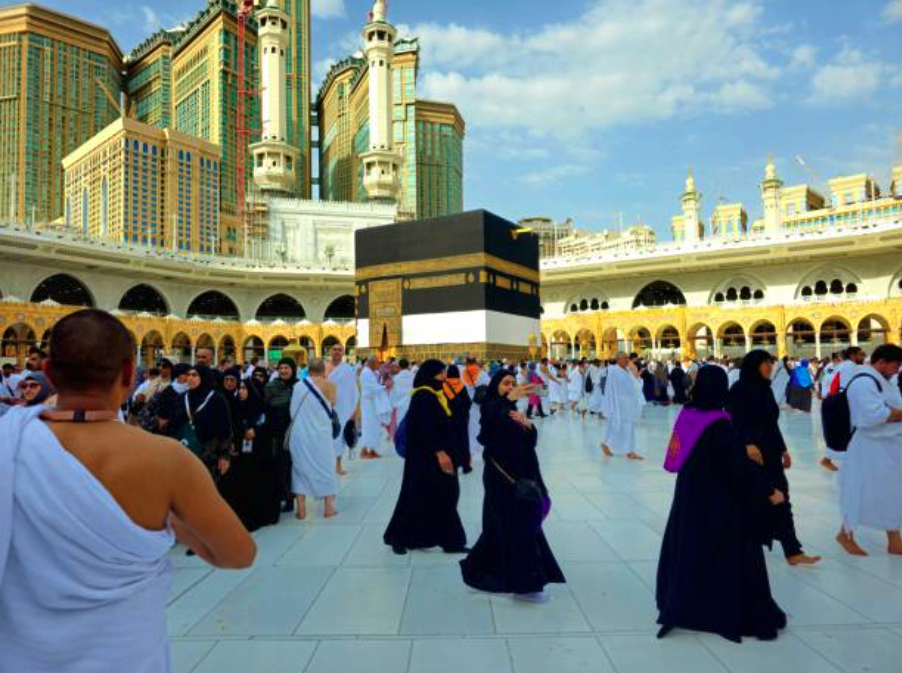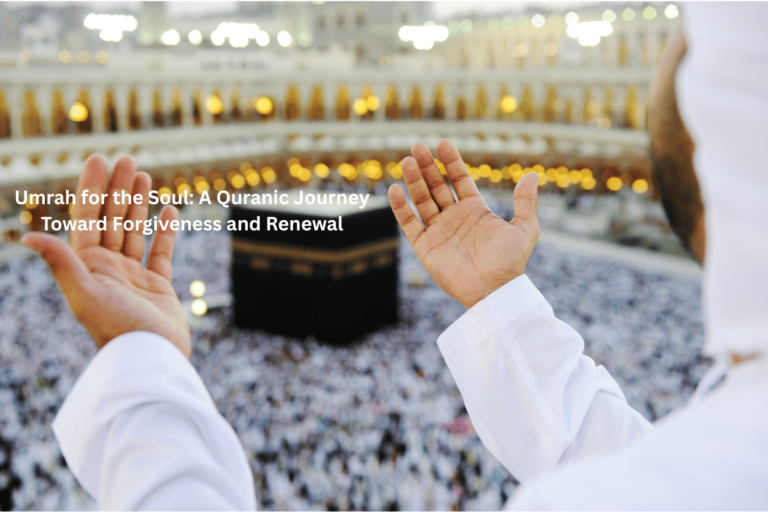The Sunnah of Reflection: How to Ponder Quranic Ayats During Umrah
Umrah is a very spiritual journey. People usually try hard to do all the rituals perfectly. However, there’s a significant practice from the Prophet Muhammad (PBUH) that many overlook: Tadabbur, which involves taking the time to truly reflect on the meaning of the Qur’an. The Prophet and early Muslims didn’t just read the Qur’an. They truly thought about it and lived by its teachings every single day.
Want to get more of your Umrah trip? This post is all about Tadabbur (reflection). You’ll learn what this kind of thinking means in Islam, why it’s so important during Umrah, and simple ways you can do it, even if you have a busy schedule.
What is the Sunnah of Reflection?
Tadabbur is an Arabic word that means to think deeply, to consider what might happen next, and to understand something thoroughly.
The Quran often tells believers to think carefully about things.
“[This is] a blessed Book which We have revealed to you, [O Muhammad], that they might reflect upon its verses…” (Surah Sad 38:29)
“Then do they not reflect upon the Qur’an, or are there locks upon [their] hearts?” (Surah Muhammad 47:24)
Sometimes, the Prophet Muhammad (peace be upon him) would pray all night long, repeating just one verse from the Qur’an. He did this because he wanted to understand its meaning deeply. For example, he once spent the night saying:
“If You should punish them—indeed they are Your servants; but if You forgive them—indeed it is You who is the Exalted in Might, the Wise.” (Surah Al-Ma’idah 5:118)
The Prophet (PBUH) and his companions didn’t just read the Qur’an; they took the time to truly understand its meaning and then act accordingly. This deep thinking was called Tadabbur.
Why Reflect During Umrah?
Umrah is not just about the physical journey; it is also about the spiritual journey. It’s a time for your soul and mind to become clear. You are in the centre of Makkah, walking where the Prophet Muhammad (PBUH) and Ibrahim (AS) walked. Your heart feels softer, and there are fewer things to distract you. This makes it a great time to think deeply.
If you are looking for Umrah packages, numerous affordable Umrah 2026 packages are available from the USA. Additionally, Tadabbur in Umrah strengthens your connection with Allah. It helps you slow down and gives you purpose to every ritual. For example, when you walk around the Kaaba, you just walk robotically. You take time to think about Allah’s beautiful names, His mighty powers, and His kindness.
How to Reflect on Qur’anic Ayahs During Umrah
You don’t need to spend a lot of time or be an Arabic expert to do Tadabbur. These simple steps can help:
Set a Clear Intention
You can start by making intentions (called “niyyah” in Arabic). Simply say in your heart: “O Allah, I want to really think about Your words and Your greatness during this journey”. When you set this intention, even a short time spent thinking counts as a good deed and helps you feel close to Allah.
Choose a Few Key Ayahs
Instead of just flipping the pages of the Quran, choose a few verses (called “ayahs”) that are about Umrah or its main ideas.
- Surah Al-Ikhlas (112:1–4): The essence of Tawheed.
- Surah Al-Fatiha (1:1–7): The opening dua of every Salah.
- Surah Zumar 39:53: “Do not despair of the mercy of Allah…”
- Ayat al-Kursi (2:255): A powerful verse about Allah’s majesty.
You can use a Qur’an app that includes tafsir or English translation.
Reflect During Key Moments
Here are the best times to think and reflect:
- While waiting in line (for Tawaf or Sa’i)
- After Salah in the Haram
- While sitting near the Kaaba
- While drinking Zamzam
Each of these moments can be quiet and powerful. For example, when you’re doing Sa’i (walking between Safa and Marwah), think about Hajar’s strong belief and how Allah took care of her and her son. Her trust in Allah is a powerful lesson for all of us.
Use a Small Journal or Notes App
“Allah’s kindness is bigger than my mistakes.” This reminds you that no matter what you do, there’s always hope and forgiveness.
You can make up your own prayer, or duas, after reading something. For example, if you read about Allah forgiving people, you can ask Him for forgiveness in your own words.
Don’t Rush the Process
It’s not about how much you read but how well you understand. Understanding one thing well is better than many ideas you don’t think about. Focus on understanding, not just reading.
Duas and Ayahs to Reflect On
Here are a few ayahs and what to reflect on:
- Surah Al-Fatiha (1:1–7): Allah’s mercy, guidance, the straight path.
- Surah Al-Baqarah (2:286): Personal responsibility, trust in Allah.
- Surah An-Nur (24:35): Allah is the Light of the heavens and the earth.
- Surah Zumar (39:53): Allah’s forgiveness for all sins.
A helpful dua from the Prophet (PBUH):
“O Allah, make the Qur’an the spring of our hearts, the light of our chest, the remover of our sadness, and the repeller of our anxiety.” (Ahmad, authenticated by Al-Albani)
Final Words
Tadabbur is a simple yet powerful way to revive your heart. It’s a forgotten good practice from the Prophet (peace be upon him). When you’re doing Umrah, it can change everything. Instead of just listing things, it becomes a profound, life-changing discussion about what Allah has said. The best part? You don’t need to be a scholar. All you need to do is be sincere, take some quiet time, and genuinely want to achieve it.
If you are a US citizen planning to perform Umrah from Houston, avoid trying to do too much at once. Pick a single verse today. Let what Allah has said gently guide your journey during Umrah and even long after you return home.







